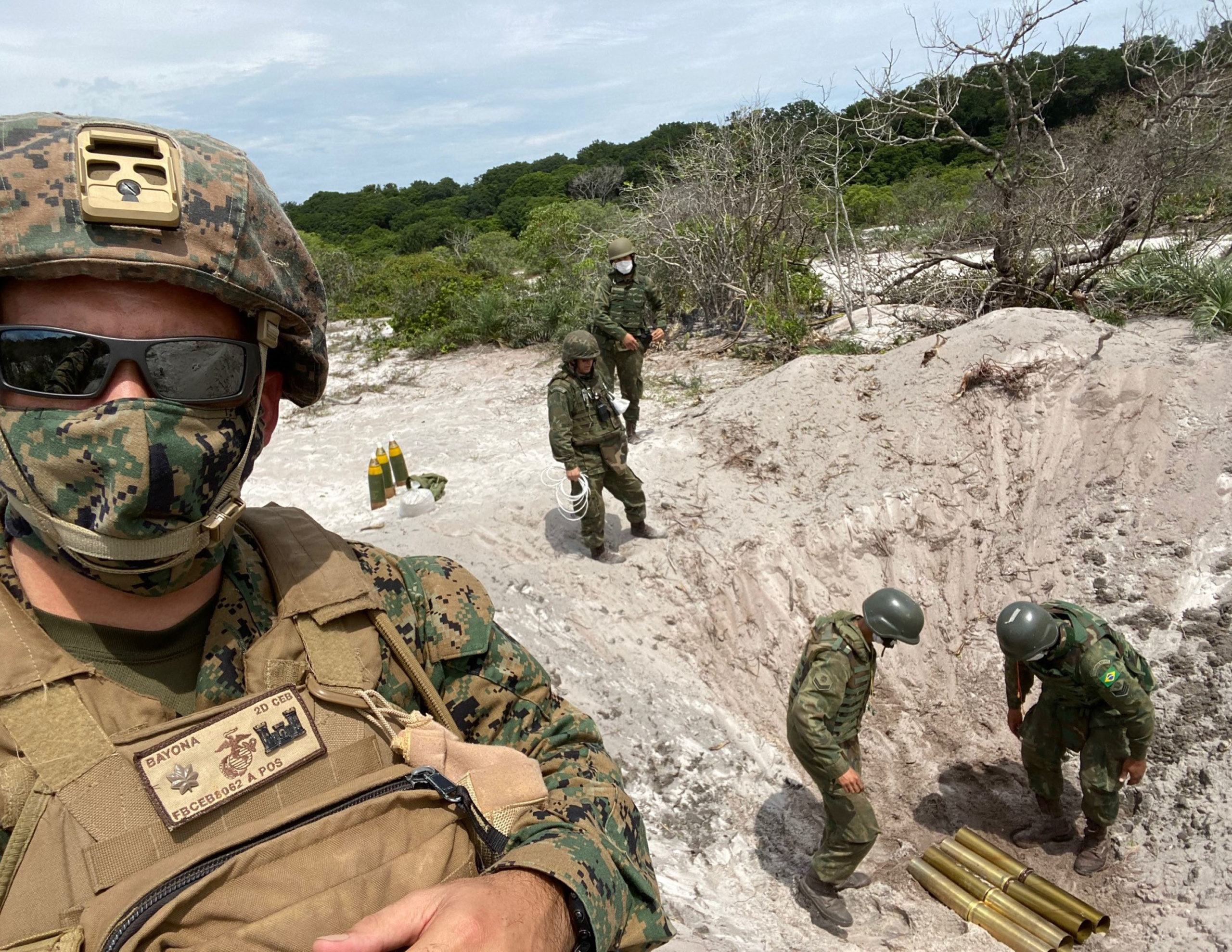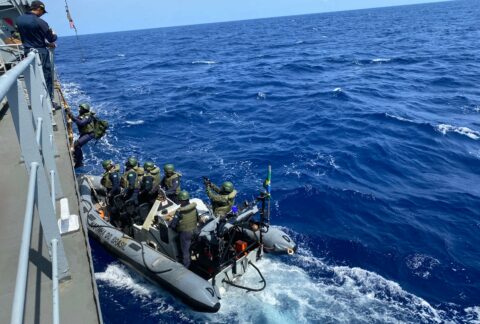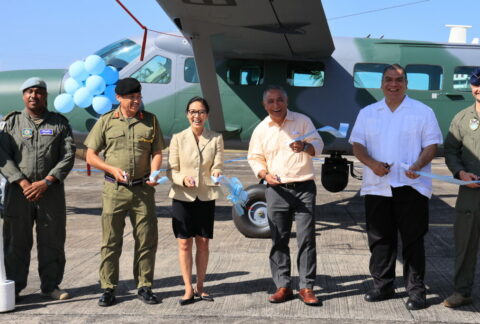U.S. Marine Corps (USMC) Major Felipe A. Bayona is an exchange officer in the Brazilian Marine Corps (CFN, in Portuguese).
The U.S. officer arrived in Brazil in August 2020 and is expected to remain with Brazilian service members until July 2023. A combat engineer officer, Maj. Bayona conducted operations in Japan, East Asia, Afghanistan, Iraq, and some Latin American countries prior to his appointment to the mission in Brazil. He told Diálogo about his experience on Brazilian soil.
Diálogo: What is your current assessment of the mission?
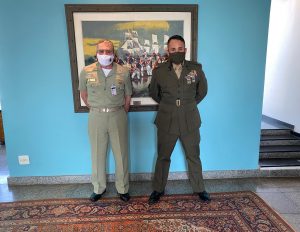
U.S. Marine Corps Major Felipe A. Bayona: Very rewarding, both professionally and personally. Although COVID-19 restrictions prevented me from achieving some of the goals I had set for the first six months in Brazil, I am happy with my achievements so far. I hope to share more experiences with the CFN in the future, such as getting onboard a Brazilian Navy ship, conducting an amphibious landing, participating in riverine operations alongside a riverine battalion in Manaus or the Pantanal, or even participating in a combined arms exercise.
Diálogo: While you serve in Brazil, a Brazilian officer is serving at Marine Corps Base Camp Lejeune, in North Carolina. How important is this integration between the forces of both countries?
Maj. Bayona: The United States and Brazil have a long history of shared beliefs and values. Our forces’ frequent exercises and personnel exchange programs help us keep this joint vision alive. Marines from around the world share a special bond. This is demonstrated by the close relationship that the USMC maintains with regional Marines from countries such as Colombia, Chile, Peru, Argentina, and Brazil.
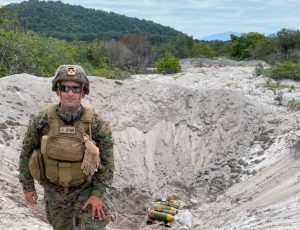
Diálogo: Which activities have you been carrying out with the Brazilian Marines?
Maj. Bayona: I was like a sponge during the first five months following my arrival, accumulating as much knowledge as possible about the CFN. This allowed me to contextualize minimal differences in the doctrine between our forces. I also had the opportunity to participate in unit readiness assessments and to join different battalions in the field. Like most marines, going into the field and sharing different ways to conduct operations have been my favorite parts of working in Brazil. Currently, I split my week between working in the Fleet Marine Squad and the CFN Doctrine Development Center. Like any marine, the first step is to carry out physical training. Later in the day, I attend different meetings or exchange ideas with other officers or sergeants.
Diálogo: How can the experience of working with the armed forces of another country add value to your professional journey?
Maj. Bayona: A good example of the benefits of this mission was the opportunity, the first in my career, to really experience something I had studied in the course for combat engineering officers: I was able to decrease an ammunition depot with the Brazilian Combat Engineering Battalion. This is a very rare opportunity in the United States. I think I am more open to other solutions now that I had the opportunity to work with other forces, like the CFN in Brazil.

